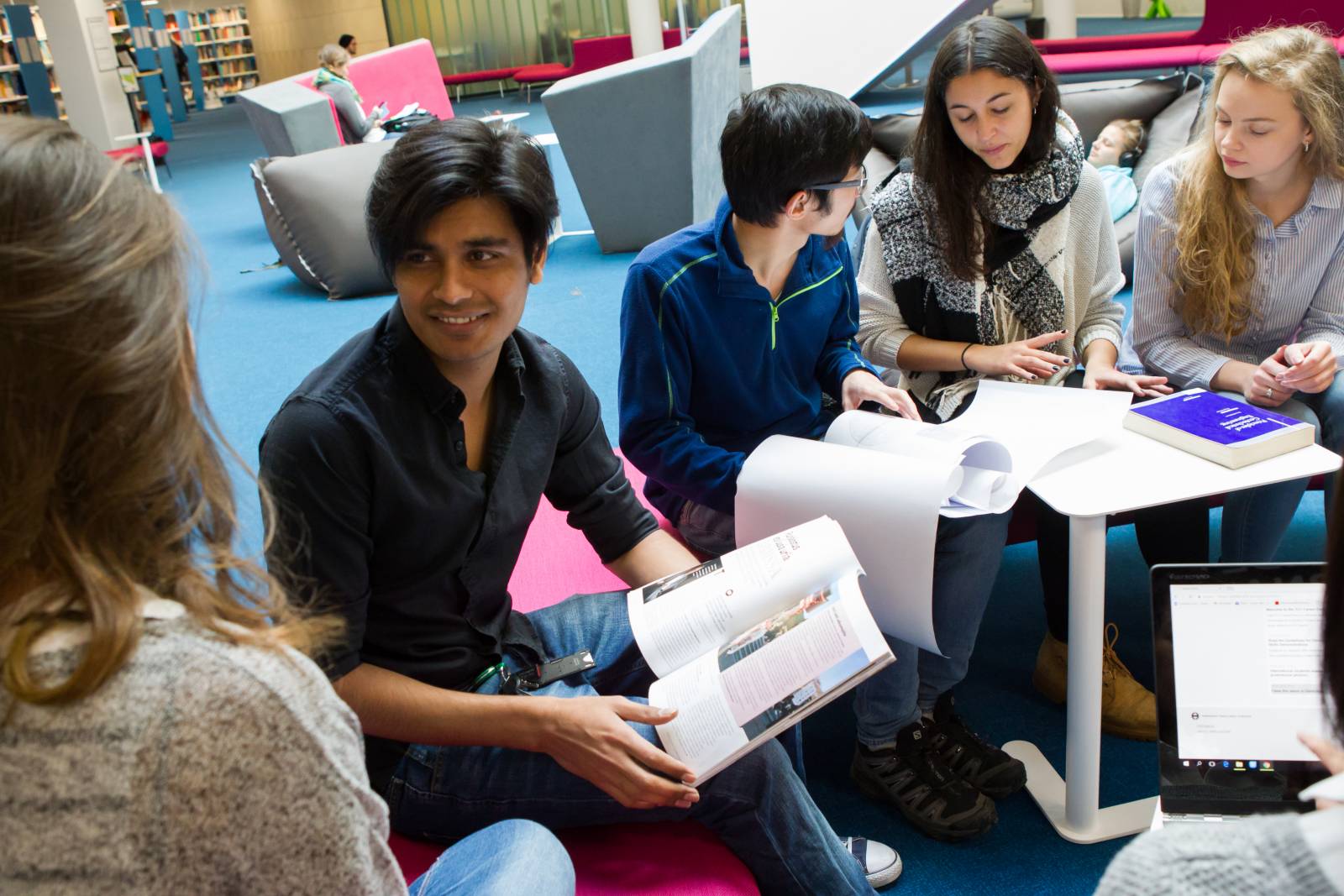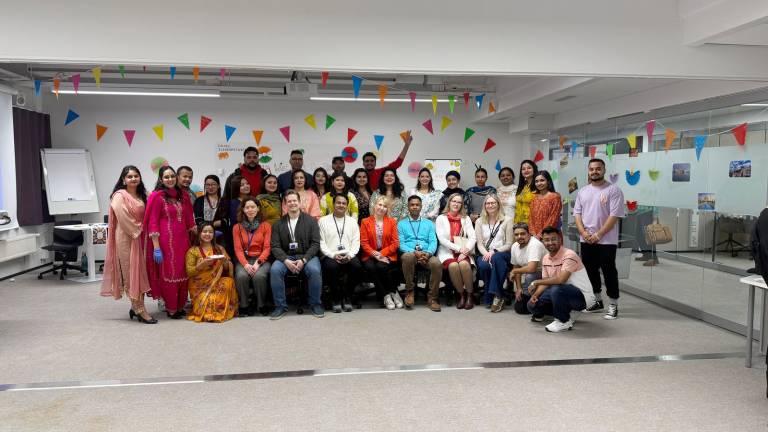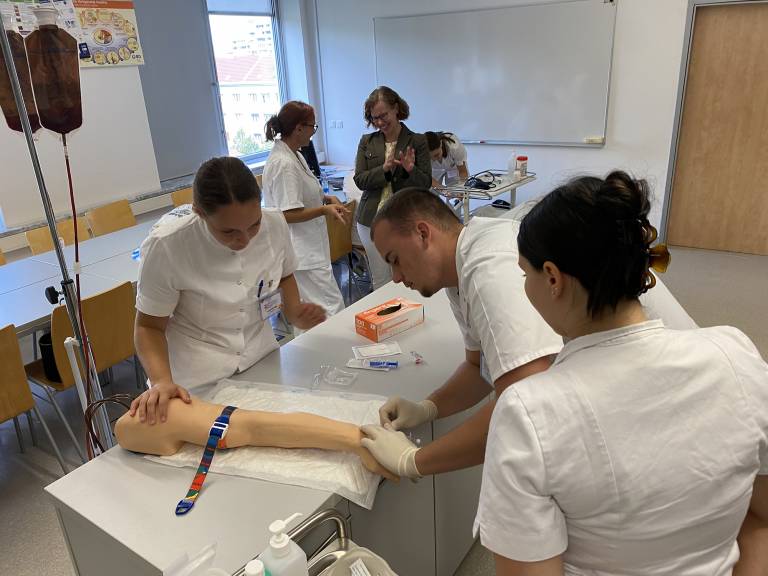The objective of internationalization in studies is to educate students to live and work in a globalized society. The typical understanding of internationalization is geared towards activities across borders, such as mobility programmes. Yet, there are also opportunities to internationalize at home with studies that advance global understanding and intercultural skills.
Internationalization at home and abroad
TAMK offers a broad variety of international activities for students.
For example, students can select an international degree programme, such as the Bachelor’s Degree in International Business. The typical IB student cohort includes students from diverse international backgrounds. In addition, one third of the IB teaching staff are from abroad.
Attending lessons given by guest lecturers from abroad is another way to internationalize. Each year TAMK’s School of Business and Media hosts a variety of guest lecturers from partner institutions during Eye on TAMK, our International Week.
Additionally, summer schools or joint courses with TAMK’s international partners offer unique possibilities for internationalization. Also, through free-choice studies, students can be involved in a variety of courses on an international level.
On top of all these, TAMK offers numerous opportunities for exchange studies or double degrees at partners Higher Education Institutions around the world. Several institutional support programs are available. For example, Erasmus+ supports mobility inside EU. Nordplus focuses on the Nordic and Baltic perspectives. First+ promotes collaboration of HEIs in Finland and Russia. Students have the possibility to apply for various grant schemes which offer financial support.
Factual and emotional reasons prevent participation
In the past year, a focus group was created to investigate the reasons preventing students from seizing these opportunities to internationalize. Additionally, students gave their opinions via an e-questionnaire.
Most participants mentioned problems with time management: student life is hectic and stressful. Often there is no time for anything “extra” not directly related to the studies. If one’s interest in international activities is low in the first place, the information about the possibilities is easily lost in the clutter of official messages.
Another obstacle is uncertainty or fear of not coping in new environments with a foreign language. Regarding the exchange, the students need more reassurance and information about how the studies, housing, etc. in the host university would be arranged.
Regarding internationalization-at-home by, for example, participating in lectures or workshops in English, the students fear the risk of teamwork in English. They don’t trust their language skills, especially if the topic is not familiar. Also, there is the bandwagon effect; students tend to ask others’ opinions on whether to go or not.
Students suggest improvements
As expected, the students of the focus group did recognize the need for internationalization to be a more integral part of their studies. In their opinion, internationalization should be a mandatory part of their degree. The internationalization activities’ contents must be relevant and well prepared, rather embedded in the regular courses. Additionally, the students suggested more cooperation with TAMK’s international partners. For example, a possibility to follow a course or a lecture online.
The development team that worked with the focus group no longer exists. However, the members wish that the degree programs in business and media will nevertheless grab the students’ ideas for further development.
Text: Tuula Andersson and Sven Rassl, TAMK Senior Lecturers in Business and Media
Image: Petri Laitinen





